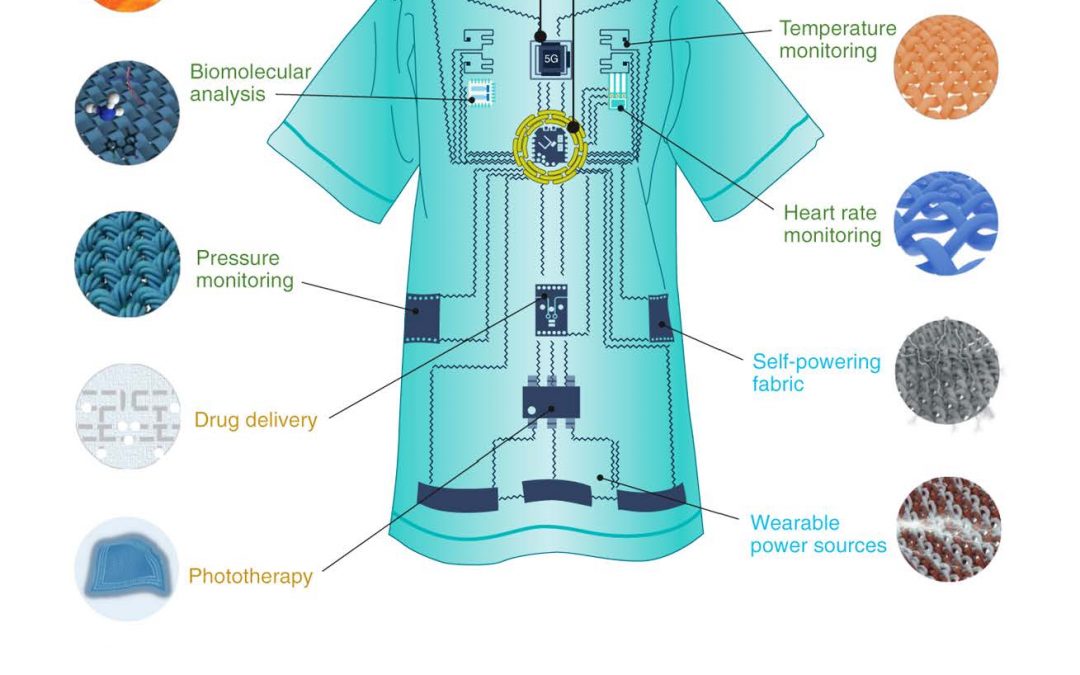A textile body area network on clothing, enabling diagnostic, therapeutic, energy harvesting, and data processing capabilities. Jun Chen Lab/UCLA.
Mar 30, 2022
Following the invitation from editors of different journals, UCLA assistant professor of bioengineering, Jun Chen, and his lab Wearable Bioelectronics Research Group put together four comprehensive review articles to introduce smart textiles to the community. The reviews cover textile technologies that can contribute to the personalized healthcare and sustainability of society. These textile devices can function as a whole entity, embed in a specific area of the normal fabric, or integrate hybridly.
Incorporating diagnostic, therapeutic, and protective capabilities into everyday textiles can be a powerful approach to the development of personalized healthcare. One review paper published in the journal Nature Electronics targets smart textiles healthcare regimens. It focuses on diagnostic (i.e. biosensors to monitor physiological information) and therapeutic tools (e.g. drug delivery) and list several mechanism platforms. Cross-collaboration between bioengineers, electrical engineers, clothing industry experts, regulatory bodies, clinicians, patients, user-interface developers, and government entities will contribute to the transition of these smart textile technologies to commercial applications. Another review paper published in Chemical Reviews , highlighted as front cover, also discussed the possibility of using textile electronics to develop various point-of-care devices for wearable healthcare. With great wearing comfort, smart textiles will play a critical role of telemedicine and conquer the future medical fields in the era of Internet of things.
Furthermore, smart textiles could contribute to sustainability. A third review published in Chemical Reviews , highlighted as front cover, takes a systematic investigation of using textiles to harvest energy from the human body and its surroundings. The textiles are able to convert the biomechanical motions, body heat, and body fluids, and ambient sunshine into electricity, which could be harnessed as sustainable power sources for on-body bioelectronics. In addition to electricity generation, smart textiles for personalized thermoregulation can also contribute to sustainability by saving energy, as described in the fourth review published in Chemical Society Reviews , and highlighted as front cover. It provides a comprehensive review of smart textiles for personalized thermoregulation, which could facilitate personal thermoregulation in a more personalized and energy-saving paradigm. This emerging field of smart thermal textiles not only helps maintain individualized thermophysiological comfort but also pushes forward more sustainable body heating and cooling alternatives.
In addition to Jun Chen, other UCLA authors are Guorui Chen, Yunsheng Fang, Alberto Libanori, Xun Zhao, Yihao Zhou, Trinny Tat,- and Michael Bick. All are members of Chen’s Wearable Bioelectronics Research Group at UCLA.
“Our hope is that the four reviews could help the community obtain a systematical understanding of current state-of-the-art smart textiles research. We will continue to develop the next generation of electronics textile to revolutionize wearable technology,” said Jun Chen.

